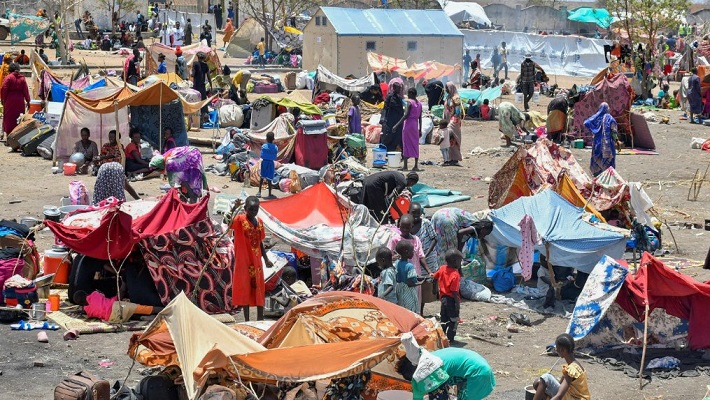By Paschal Norbert
TORIT, MAY 16, 2023 (CISA)- One month and with no solution in sight since fighting broke out in Sudan, tens of thousands of South Sudanese refugees who had previously fled their country because of conflict are now returning home to seek refuge from the ongoing violence.
In a news report by the Catholic Radio Network, the chairperson for the South Sudan Relief and Rehabilitation Commission (RRC) in Eastern Equatoria State, Mr Augustine Okuma, says over 800,000 South Sudanese refugees are expected to return home from Sudan.
Mr Okuma stated that the returnees are “forced” by circumstances to return to South Sudan and will need the local community to provide shelter and psychological support.
“Our people who are coming from Sudan are forced returnees. These forced returnees are coming from Sudan not because they planned to come, they are running for their lives, and they also need us to help them, some of them are born there, they grew up there and even they don’t know the way people are staying here, they may get it a little bit difficult for them to integrate to the lifestyle we are having here, so they need support from us both physically and also psychologically, we need to support them,” said Mr Okuma on May 12.
“We have over eight hundred thousand South Sudanese registered refugees, so we are expecting more than eight hundred thousand people who will be coming back to South Sudan,” he stated.
In calling for urgent humanitarian assistance to support the returnees settling back home, the office of the governor for Eastern Equatoria State said preparations are underway to offer transportation to the returnees from the capital Juba to their destinations and reintegrate them into society and with relatives in their various places of origin across the state.
“The most important thing is that if they arrive the state government with the partners will be in a position to transport them to the places of their respective origins with the help of the humanitarian agencies,” said Mr Oringa John Godfrey, the press secretary in the office of the governor.
According to Mr Godfrey, the state has no plan of establishing an Internally Displaced Camp (IDP) but will rather prioritize the reintegration process.
“The Eastern Equatoria State is peaceful, so there is no any establishment of a camp, what is very much important is they need to come so that they can join the communities in cultivation so that they can reintegrate with their people and they can start doing their work through the support from the humanitarian agencies, who are giving shelter, utensils, some food assistance for some short period, he said.
According to Kurt Tjossem, the International Rescue Committee (IRC) Vice President for East Africa, “IRC staff at the borders with Sudan have reported thousands of refugees living in makeshift tents with limited access to clean water and sanitation. Efforts are underway to transfer them to neighbouring existing camps, but the large numbers of people make this a challenging task. We know there are many uncertainties for people right now, but one thing that’s clear is the needs are immense, immediate and will be for a long time. The longer they remain in these conditions, the more vulnerable they become to disease, hunger, and other hardships.”
IRC avers that the humanitarian situation in Sudan will continue to deteriorate unless all parties to the conflict prioritize the protection of civilians and ensure they have unrestricted access to lifesaving humanitarian aid.
The humanitarian agency also appealed that the low-income fragile countries who are providing this refuge must be better supported by the international community, especially by fully funding their humanitarian response plan.

